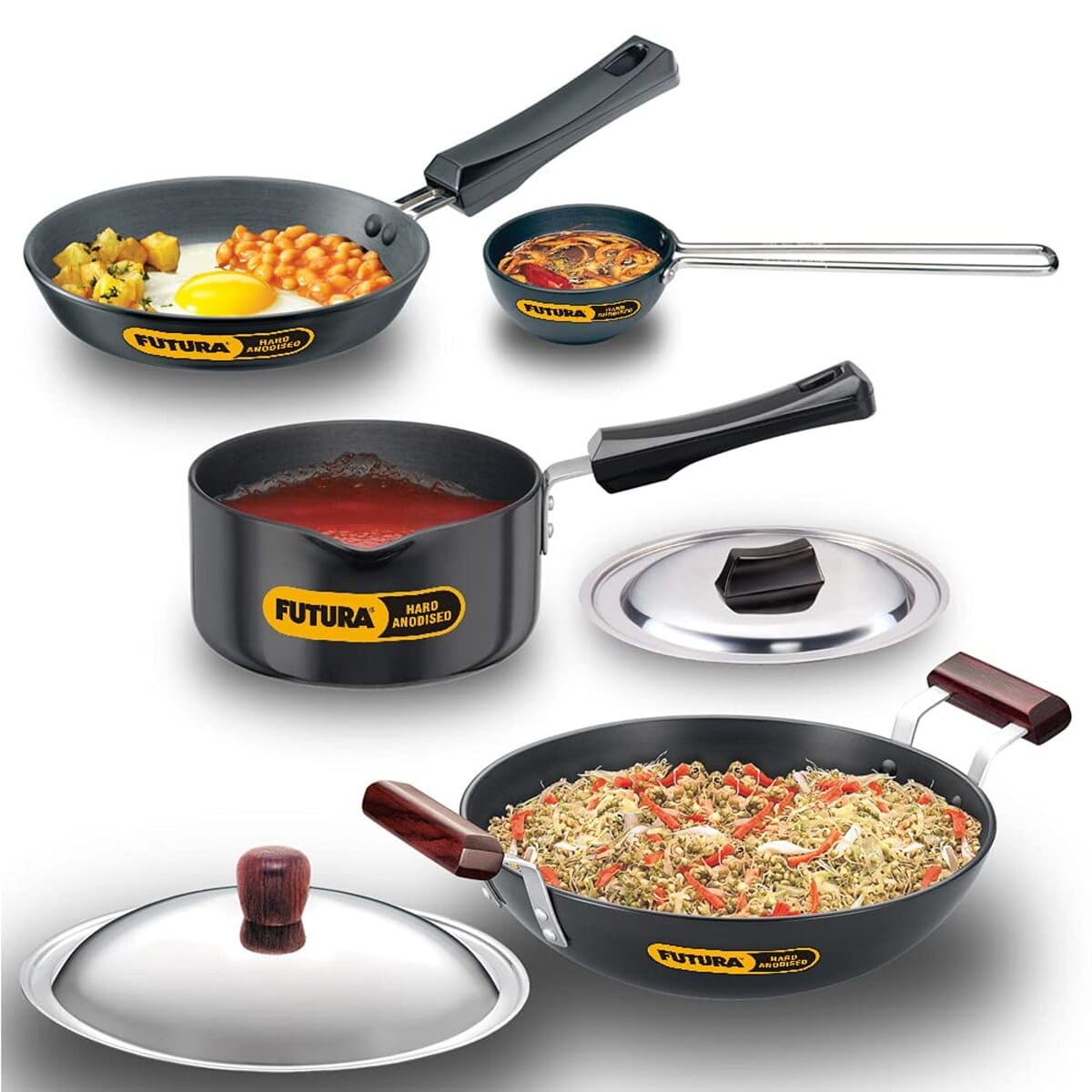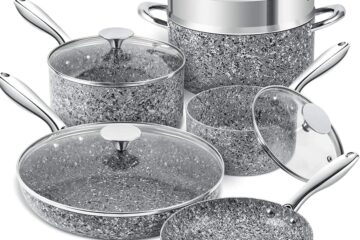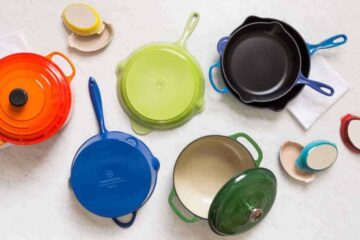Hard anodized cookware is a popular choice for many home cooks due to its durability and non-stick properties. However, cleaning this type of cookware can be a challenge, especially if you’re not sure how to do it properly. In this article, we will provide some tips and tricks on how to clean hard anodized cookware effectively and safely.
One of the most important things to keep in mind when cleaning hard anodized cookware is to avoid using abrasive materials that can scratch the surface. Instead, opt for gentle scrubbers like soft-bristled brushes or sponges. Additionally, it’s crucial to use the right cleaning products that won’t damage the non-stick coating or the anodized finish. In this article, we will discuss some of the best cleaning agents to use for hard anodized cookware and how to use them effectively.
Whether you’re dealing with burnt-on food, stains, or discoloration, our guide will provide practical solutions to help you restore your hard anodized cookware to its original condition. By following our tips and tricks, you can keep your cookware looking and performing its best for years to come.
Gathering Supplies
When it comes to cleaning hard anodized cookware, having the right supplies is essential. Here are some of the supplies that can make the cleaning process easier:
Dish Soap
Dish soap is a must-have when it comes to cleaning hard anodized cookware. It is important to choose a mild dish soap that is not too harsh and won’t damage the surface of the cookware. Calphalon recommends using Dawn dish soap for cleaning hard anodized cookware.
Water
Hot water is another essential supply for cleaning hard anodized cookware. The water should be hot enough to help loosen any food particles that may be stuck to the surface of the cookware. However, it is important not to use boiling water, as this can damage the surface of the cookware.
Baking Soda
Baking soda is a gentle abrasive that can be used to help remove stubborn stains and food particles from hard anodized cookware. However, it is important to use baking soda sparingly and to avoid using it on the interior of the cookware, as it can scratch the surface.
Soft Sponge or Cloth
A soft sponge or cloth is essential for cleaning hard anodized cookware. It is important to choose a sponge or cloth that is not too abrasive, as this can scratch the surface of the cookware. A soft sponge or cloth can be used to gently scrub away any food particles that may be stuck to the surface of the cookware.
Cleaning Hard Anodized Cookware
Cleaning hard anodized cookware can be a daunting task, especially if you’re not sure where to start. However, with the right tools and techniques, it can be a breeze. Here are some steps to follow to make sure your hard anodized cookware stays clean and in great condition.
Step 1: Soak the Cookware
The first step in cleaning hard anodized cookware is to soak it in warm water. This will help loosen any food particles or stains that may be stuck to the surface. You can also add a few drops of dish soap to the water to help break down any grease or oil.
Step 2: Scrub with Baking Soda
After soaking, the next step is to scrub the cookware with baking soda. Baking soda is a gentle abrasive that can help remove any remaining stains or stuck-on food particles. You can sprinkle baking soda directly onto the surface of the cookware, or mix it with a little water to make a paste.
Using a soft-bristled brush or sponge, gently scrub the surface of the cookware in circular motions. Be sure to pay extra attention to any areas that are particularly dirty or stained. Avoid using any harsh or abrasive cleaners, as these can scratch the surface of the cookware.
Step 3: Rinse and Dry
Once you’ve scrubbed the cookware, the final step is to rinse it with warm water and dry it thoroughly. Be sure to rinse off all of the baking soda, as any residue left behind can cause discoloration or damage to the surface of the cookware.
To dry the cookware, use a soft towel or cloth and gently pat it dry. Avoid using any abrasive materials, as these can scratch the surface of the cookware. Once it’s dry, you can store it away until you’re ready to use it again.
Preventing Future Damage
To keep your hard anodized cookware in excellent condition, it is essential to prevent future damage. Here are some tips that can help you:
Avoid High Heat
Avoid exposing your hard anodized cookware to high heat. High heat can cause the non-stick coating to deteriorate, and the cookware can become discolored or warped. Always use a low or medium heat setting when cooking with hard anodized cookware.
Use the Right Utensils
Using the right utensils is essential to prevent scratches on the surface of your hard anodized cookware. Avoid using metal utensils, as they can scratch and damage the non-stick coating. Instead, use silicone, nylon, or wooden utensils.
Clean After Each Use
Cleaning your hard anodized cookware after each use is crucial to prevent future damage. Use warm soapy water and a soft cloth to clean the cookware. Avoid using harsh chemicals or abrasives, as they can damage the non-stick coating. Also, do not put the cookware in the dishwasher, as the high heat and harsh detergents can cause damage.
Conclusion
Cleaning hard anodized cookware is an easy task that can be accomplished with some simple steps. The first step is to rinse the cookware to remove any loose particles. Next, use a mild dishwashing detergent to help break down any grease or oils. It is important to avoid using baking soda or any other alkaline-based cleaning products on the inside of the cookware as it can damage the anodized coating.
One of the best detergents for cleaning hard anodized cookware is Dawn. It is recommended by some manufacturers and users. A soft-bristled brush or sponge can be used to clean the cookware with the help of hot water and the detergent. A salt scrub or baking soda can also be used to clean the cookware.
It is important to avoid using harsh detergents or abrasive materials when cleaning hard anodized cookware, as they can damage the non-stick coating. Vinegar and lemon can be used to remove stains and discoloration from the cookware.
In conclusion, cleaning hard anodized cookware is a simple process that can be accomplished with some basic steps. By using the right detergents and cleaning materials, users can keep their cookware looking like new for a long time. It is important to follow the manufacturer’s instructions and avoid using harsh chemicals or abrasive materials when cleaning the cookware.



